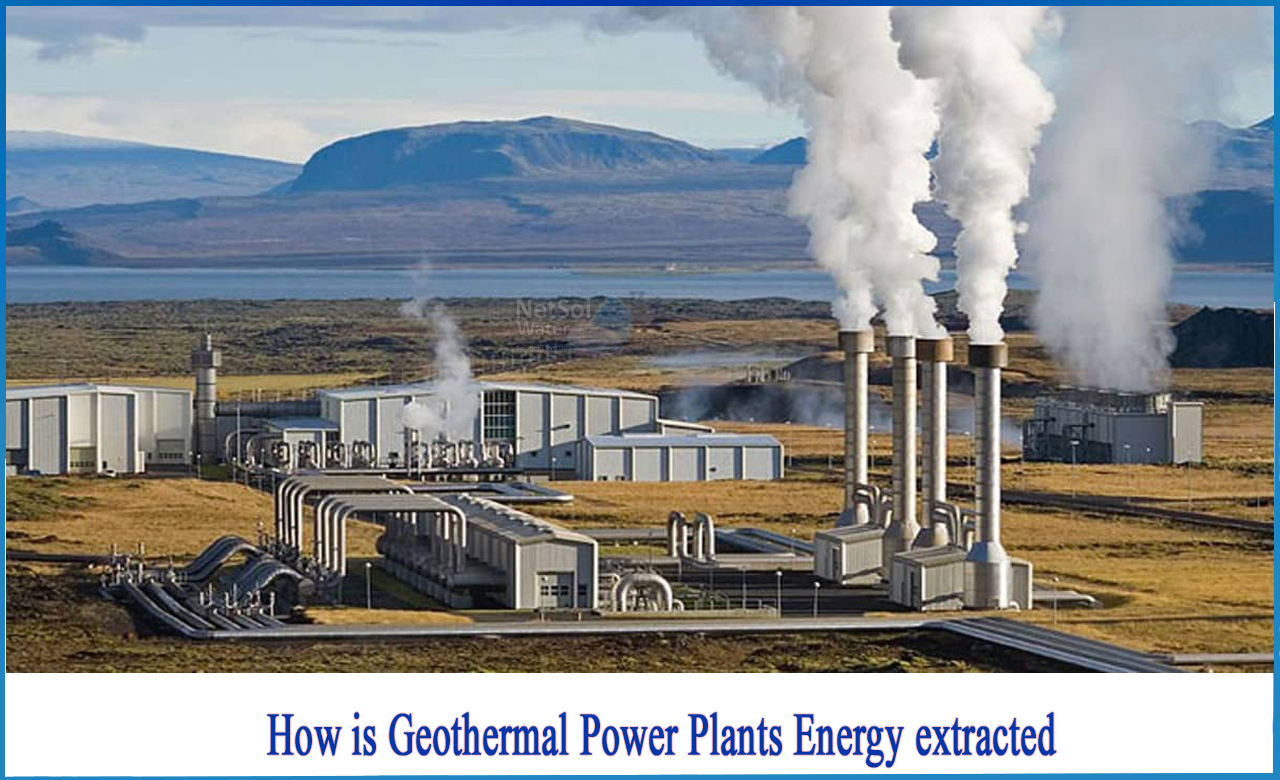How is energy generated in Geothermal Power Plants?
Under elevated pressure levels, hot water is pumped from deep underground through wells. The water pressure drops, as it approaches the surface, causing it to convert into steam. Thus, the steam spins a turbine. Turbine is connected to an electrical generator.The water is then circulated above ground, where it can be used for heating.
How is geothermal Power Plants energy extracted?
The presence of water reservoirs near hot locations is required for geothermal energy extraction. Drilling into the ground and removing the hot water, similar to how oil and gas extraction is done, is how the procedure is carried out. Water is removed as a vapour if the temperature is high enough, and this vapour can be used to spin a turbine, generating low-cost electricity permanently for a long time.
Depending on the temperature of the extracted water, there are essentially three types of geothermal temperature fields:
1: High-temperature geothermal energy in between 150° and 400°C. It generates vapour at the surface, which can then be delivered to turbines to generate electricity.
2: Medium temperature geothermal energy in between 70° and 150°C. It requires the conversion of vapour into power which can be lower. Small power plants can take advantage of these resources.
3: Low-temperature geothermal energy in between 60° and 80°Cand very low-temperature geothermal energy in between 20° and 60°C. These are commonly employed for home, urban, and agricultural uses.
Treatment of Geothermal Fluids
Once the extraction wells have been found, a geothermal fluid made up of vapour, water, and other materials is retrieved and sent to the geothermal power plant for treatment.
1: It goes through a separator first, which separates the vapour from the brines, condensates, and entrainment liquid, which is a mix of water and other contaminants.
2: The vapour is then sent to the turbines, whose motion drives an electric generator. The vapour is condensed and cooled in towers and ponds after passing past the turbines.
Advantages of geothermal water for energy production
The geothermal water utilized for energy production can be divided into two categories:
1: It can be pumped back into the reservoir to reheat it and maintain pressure so that the geothermal reservoir does not run dry. This method is extremely costly, but it may be possible for large, long-term wells.
2: It can be releasedbut, because of the salt and minerals it contains, rivers and lakes will be contaminated.
Treatment of water obtained from geothermal power plants
To reduce the severity of these consequences, water can be treated before to discharge to remove salts and metals that are harmful to the environment. When water re-injection into the ground is not economically practical, this would be a cost-effective solution.In this case, a combination of membranes, vacuum evaporation, and crystallisation is the finest available method for treating geothermal water.
With a variety of chemical, thermal, membrane, and ion specific sensor technologies available, Netsol Water may assist geothermal operators in reducing contaminants and treating other impurities of concern.Give us a callon+919650608473 or contact via email at enquiry@netsolwater.com for further consultation or product purchase related query.



